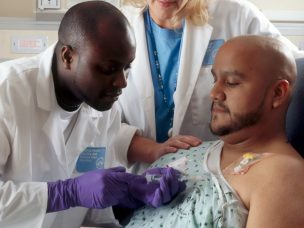Myelodysplastic syndromes (MDS) have been challenging to develop treatments for, partially due to insufficient recruitment in clinical trials. The factors underlying this low recruitment have not been well understood. This study, published in Cancer, compared patients with MDS that enrolled in intervention trials with those who did not. The study’s goal was to obtain a more robust understanding of the characteristics and demographic factors common to each group.
This study used data from the U.S. MDS Clinical Research Consortium. The data were gathered from 1,919 patients with MDS. Of these patients, 23% participated in an intervention trial. The researchers found that 64% of the trial participants were male, with a median age of 68. Overall, patients who participated in trials were more likely to be younger and male. Although race was not correlated significantly with trial participation, living in a wealthier zip code was.
Researchers also found that trial participation correlated with a reduced hazard of death. Despite this finding, a small minority of patients were found to participate in trials. Among the factors that limit enrollment in these trials, the researchers identified age restrictions, comorbidities, and past cancer history as the main factors. They note that more research is needed to determine how future investigators can recruit a more diverse cohort of trial participants with MDS [1].
Source:
[1] Brierley, C. K., Zabor, E. C., Komrokji, R. S., DeZern, A. E., Roboz, G. J., Brunner, A. M., Stone, R. M., Sekeres, M. A., & Steensma, D. P. (2020). Low participation rates and disparities in participation in interventional clinical trials for myelodysplastic syndromes. Cancer, 126(21), 4735–4743. https://doi.org/10.1002/cncr.33105










